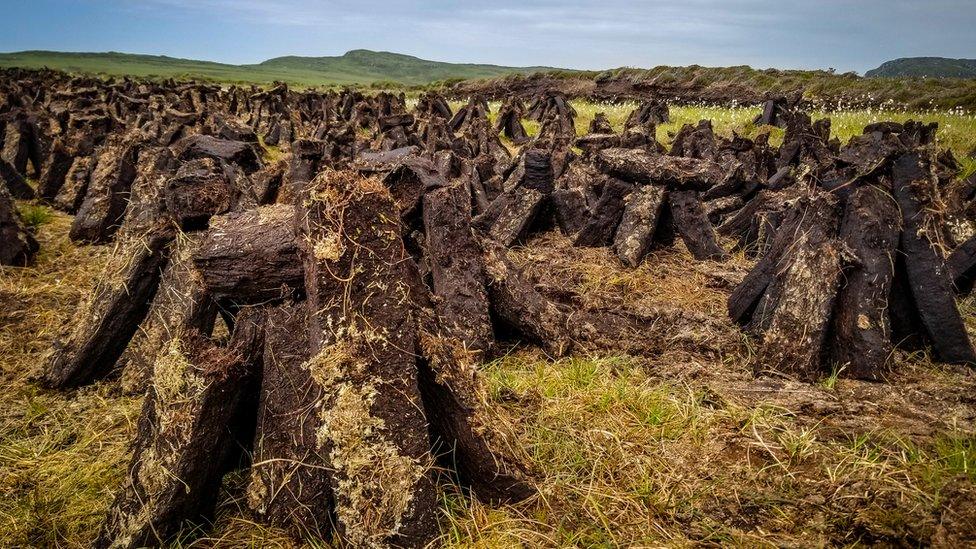Unlocking the secrets of life on the peatlands
- Published
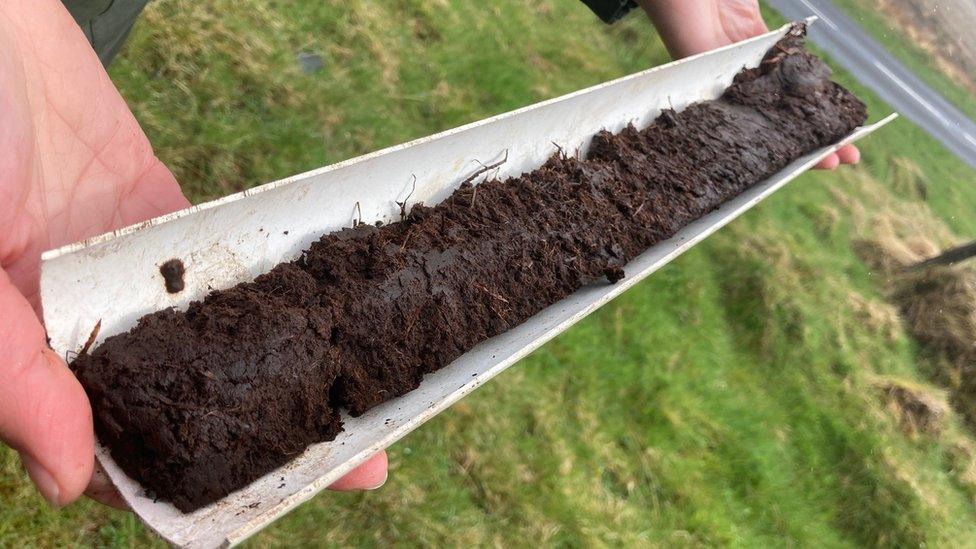
Cores removed from a peat bog reveal facts about human life 1,000 years ago
Peatlands play a critical role in the fight against climate change.
They lock away carbon, stopping it from damaging the atmosphere any further.
And now scientists from Queen's University Belfast have been unlocking the secrets of the Antrim Plateau peatlands.
Cores from the peatlands of Slieveanorra Forest have shown that not only did people live in what appears an inhospitable environment, they adapted to the effects of climate change over time.
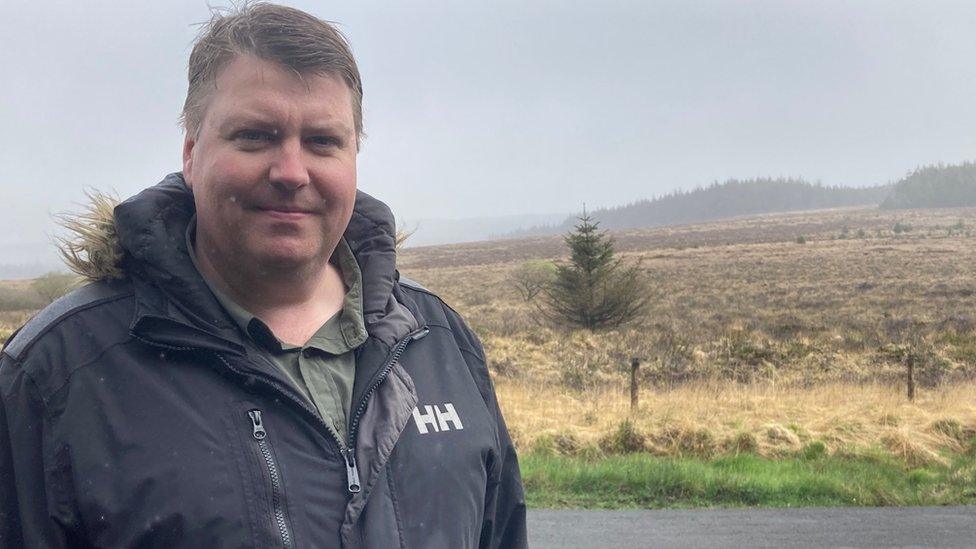
Prof Graeme Swindles says peatlands are natural time capsules
Graeme Swindles, a professor of Physical Geography at Queen's said peatlands can be considered as "natural time capsules, and as the peat is forming, over time they can lock in information about climate change, about ecosystems and also about human impacts on the landscape".
"So that is another reason why we must do all we can to protect and conserve our peatlands," he added.
The peat locks this information away in layers that the scientists can analyse - reading it like chapters in a book, using markers in the samples like microscopic volcanic ash from recorded eruptions to link sections of each core to specific points in time.
Although the scientists have not drilled to the base of the bog at Slieveanorra, they believe it goes back to the previous ice age, about 12,000 years ago.
However, this study focused on a much shorter timeframe.
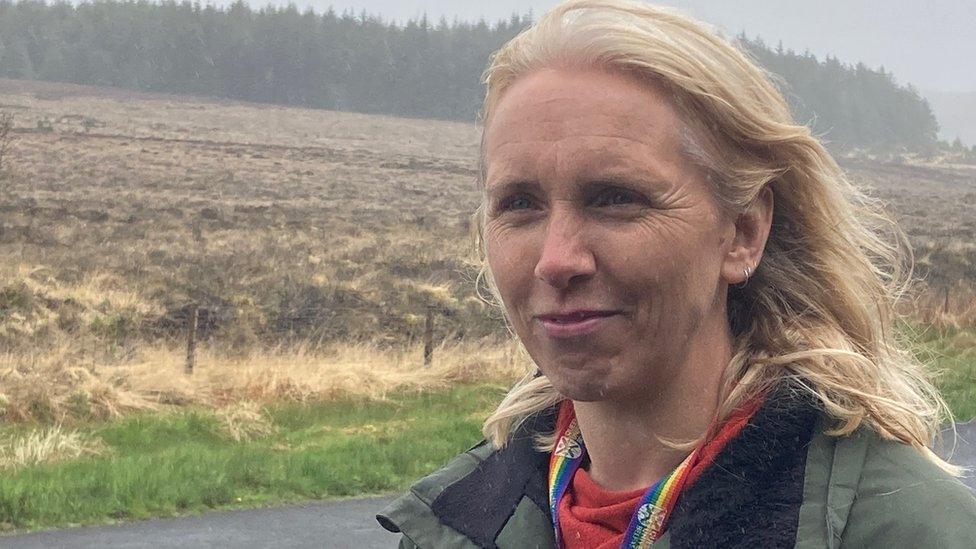
Dr Gill Plunkett says humans lived in the area as far back as 1200
Dr Gill Plunkett, reader in Archaeology and Palaeoecology at Queen's University Belfast's School of Natural and Built Environment said they "looked at a core that was going back 1,000 years".
"We reconstructed a climate record, because the peat is telling us about what the bog was like, responding to climate, and we reconstructed what the environment was like, the landscape surrounding the bog, from the pollen record.
"We combined these two records to find out what the relationship between humans and their environment was like. And to our surprise we found that people have been living here for many centuries, right back to about 1200.
"They have been farming the area, and the pollen from the cereals they were growing, for example, can't have travelled very far, we know it doesn't travel very far.
"So they must have been living very, very close to the bog.
"And they lived here through plagues, epidemics, climate change, and they seem to be able to withstand all these different pressures people were feeling elsewhere, but they managed to get by."
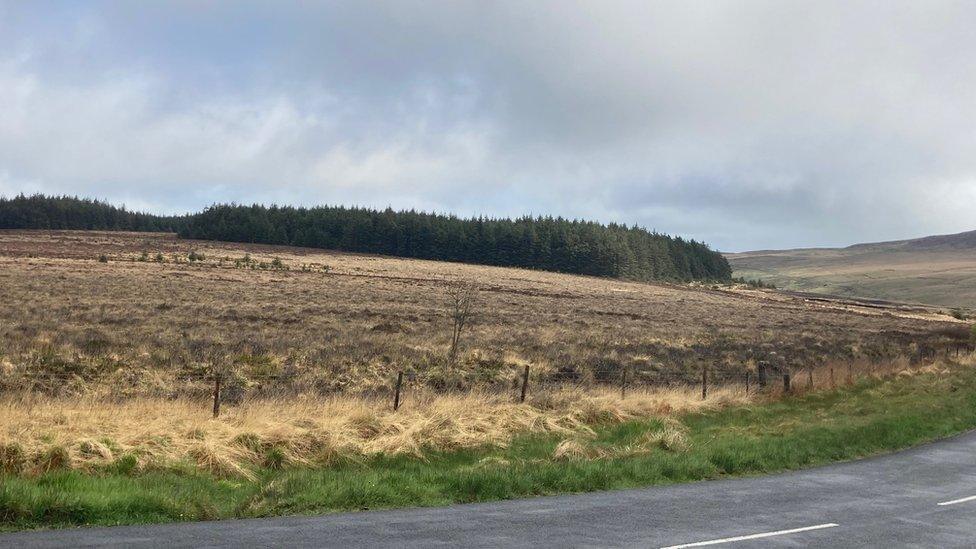
The Queen's University scientists have been working on the bleak Antrim plateau
The question for the scientists is: How were these ancestors able to adapt?
"We think they were able to adapt because they weren't relying on one crop," said Dr Plunkett.
"We also think that they weren't growing food for a profit, they were growing what they needed.
"They couldn't grow wheat in this area for example, but they could grow things like oats and rye, which are adapted to the environment.
"So just growing things that will grow, knowing what is suitable for a particular area, and keeping it diverse, I think, helps us to withstand the issues of climate change.
"We can't prove that, but that's how we hypothesise it. What we can see is that they managed to get through and they continued to grow crops through most of the worst of the climate in the last 1,000 years.
"Today, if we try to grow things for excess production and we're trying to maximise production, then we're more susceptible to economic issues when crops don't do so well."
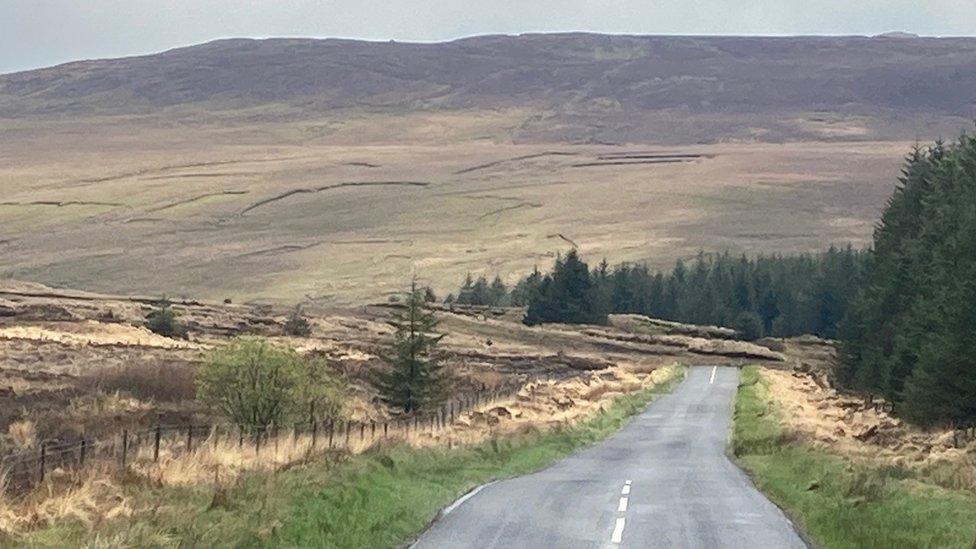
The distant hills display scarring from peat digging
"With climate change accelerating as a result of human activity, learning the lessons of the past could be important to future survival, wherever people are living.
"The lesson for today is that it would be better to grow what we need locally - sustainably - it would be good if we could support local farmers to produce food for us, rather than importing food from the other side of the world where we're reliant on market forces," said Dr Plunkett.
And Professor Swindles agrees.
"The rate of climate change is absolutely incredible," he said.
"And one of the things we need to do is think about nature-based climate solutions, so planting trees, looking after our peatlands, the things that are going to help us along the way to slow down climate change.
"They're not going to stop climate change, but they're going to help us slow it down."
Related topics
- Published6 April 2022
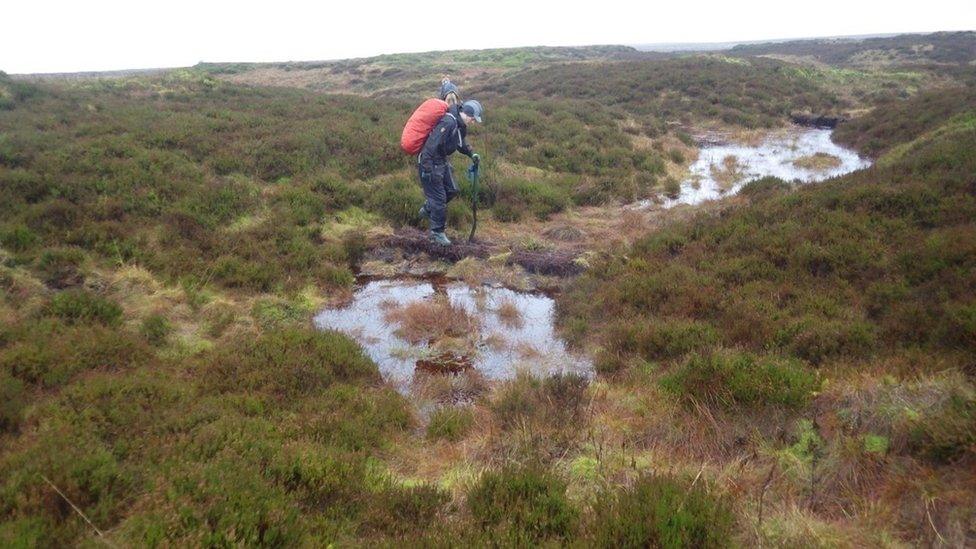
- Published25 January 2022
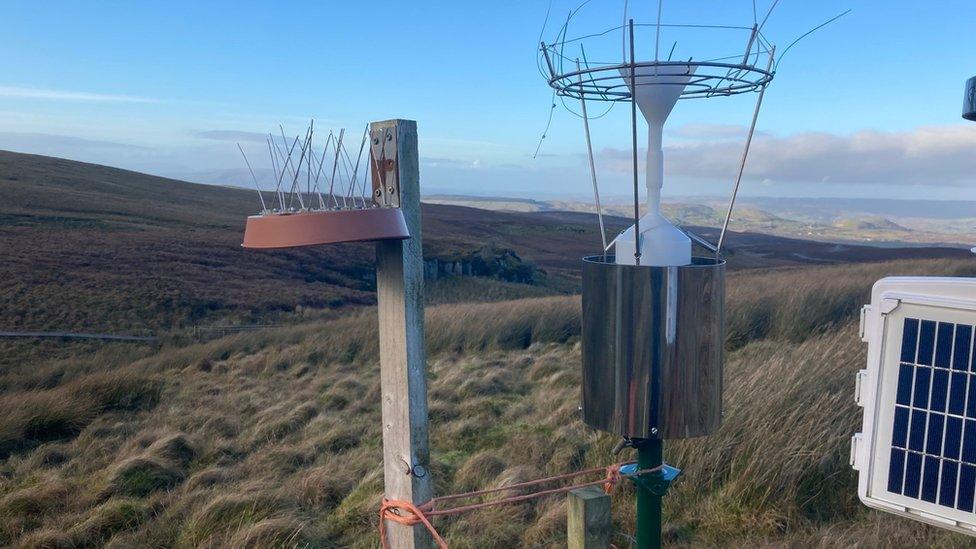
- Published12 November 2021
